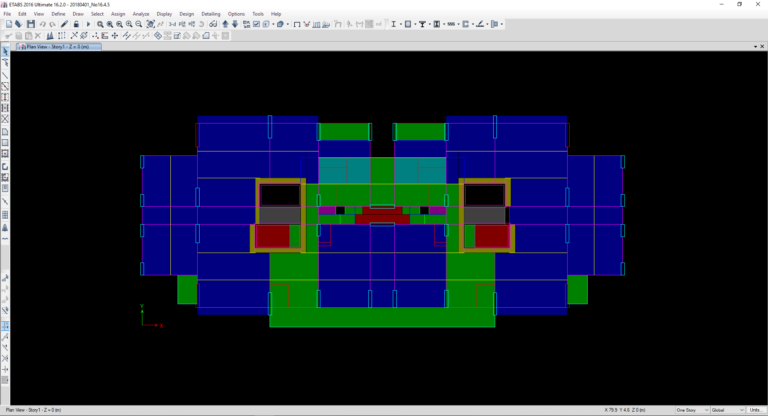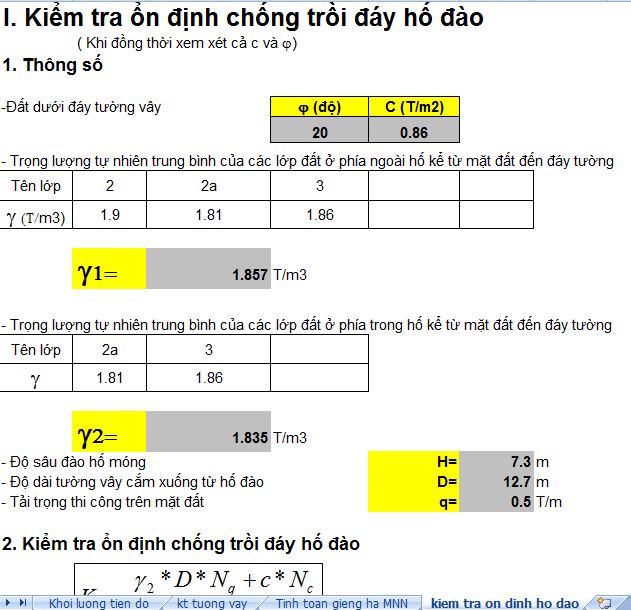Topic where's my refund status still processing: Wondering about the status of your refund? While it\'s frustrating to see the \"still processing\" message, take comfort knowing that the dedicated team at the tax office is diligently working on it. Due to the effects of COVID-19, delays are inevitable, but rest assured, your refund is on its way. Stay patient a little longer, and soon you\'ll receive the funds you rightfully deserve.
Table of Content
- Where can I find information about why my refund status is still processing?
- Why does my refund status still show as processing?
- How long does it typically take for the processing status to change?
- YOUTUBE: Refund Status: Your Tax Return is Still Being Processed - What to do if it\'s more than 21 days?
- What could be the reasons for the delay in processing my refund?
- Are there any errors or issues that could be causing the processing delay?
- How can I check the status of my refund online?
- Is there a way to expedite the processing of my refund?
- Does the COVID-19 pandemic have any impact on the processing time?
- Are there any steps I can take to speed up the refund process?
- What should I do if my refund status remains processing for an extended period of time?
Where can I find information about why my refund status is still processing?
To find information about why your refund status is still processing, you can follow these steps:
1. Visit the official website of the tax authority in your country, such as the Internal Revenue Service (IRS) in the United States.
2. Look for a section specifically dedicated to tax refunds or a \"Where\'s My Refund\" tool. This section is usually found under the \"Refunds\" or \"Individuals\" category.
3. Click on the \"Where\'s My Refund\" or similar link. This will take you to a page where you can check the status of your refund.
4. Enter the required information, which typically includes your Social Security number or taxpayer identification number, your filing status, and the exact amount of your refund.
5. Press the submit or check status button to access the information about your refund.
6. The system should display the current status of your refund, along with any explanations or updates regarding its processing. If your refund is still processing, there might be a message addressing the delay.
7. Read through any details provided to get an understanding of why your refund is taking longer than expected. Common reasons for refund delays could be errors in your tax return, missing documentation, identity verification requirements, or backlog due to high volumes of tax returns.
8. If the information provided does not fully explain the delay or you require additional assistance, look for contact information on the website. This can usually be found in the \"Contact Us\" or \"Help\" section. Consider reaching out to the tax authority through phone, email, or online chat to get personalized assistance regarding your specific situation.
Remember to remain patient as the processing time for refunds can vary depending on various factors, including the complexity of your tax return and the workload of the tax authority.
READ MORE:
Why does my refund status still show as processing?
There could be several reasons why your refund status is still showing as \"processing.\" Here are some possible explanations:
1. Error or Incomplete Information: If there is an error or incomplete information on your tax return, the IRS may need more time to review and process it. This can include missing or incorrect social security numbers, incorrect income information, or claims for certain tax credits or deductions.
2. Fraud Prevention Measures: The IRS has implemented strict measures to prevent tax fraud and identity theft. As part of their verification process, they may take longer to review certain tax returns to ensure accuracy and legitimacy. This can cause a delay in processing your refund.
3. Backlog and Delays: The IRS may be experiencing a backlog or delays in processing tax returns due to various reasons. This can include a high volume of tax returns during peak filing season, staffing issues, or other unforeseen circumstances. The ongoing COVID-19 pandemic has also contributed to delays in IRS operations.
4. Manual Review or Audit: In some cases, your tax return may be selected for a manual review or audit by the IRS. This usually happens if there are red flags or inconsistencies in your return. If your return is selected for review, it can take longer for your refund to be processed.
5. Refund Offsets: If you owe any outstanding federal or state debts, such as unpaid taxes, child support, or student loans, the IRS may offset your refund amount to satisfy these debts. If this is the case, your refund status may still show as \"processing\" until the offset is completed.
It\'s important to note that the IRS usually updates refund statuses once a day, usually overnight. So it\'s possible that your refund has been processed but the online status hasn\'t been updated yet. If your refund status has been showing as \"processing\" for an unusually long time or if you have any concerns, it\'s always a good idea to contact the IRS directly for assistance.
How long does it typically take for the processing status to change?
The processing status of a tax refund can vary depending on several factors, including the accuracy of the tax return, any errors or discrepancies that need to be resolved, and the volume of returns being processed by the tax authority. While there is no fixed timeframe, the following steps may help provide an estimate of when the processing status may change:
1. Ensure Accuracy of the Tax Return: Double-check your tax return to make sure all information, such as income, deductions, and credits, is accurate. Any errors or incomplete information can cause delays in processing.
2. Allow Processing Time: It can generally take up to 21 days for the IRS to process a tax return and issue a refund. This timeframe starts from the date the tax return was e-filed or from the postmark date if the return was filed by mail.
3. Use \"Where\'s My Refund\" Tool: Visit the official website of the tax authority, such as the IRS, and use the \"Where\'s My Refund\" tool available on their website. This tool allows you to check the status of your tax refund by providing your Social Security number, filing status, and refund amount. It will provide updates on the processing status and an estimated date of when the refund will be issued.
4. Follow Additional Instructions: If there are any issues with your tax return, such as a need for further documentation or clarification, the tax authority may reach out to you by mail or through the online account associated with your tax return. Follow any instructions provided promptly to resolve any issues and expedite the processing time.
5. Contact the Tax Authority: If it has been more than 21 days since you filed your tax return and the processing status is still showing as \"processing,\" it may be helpful to contact the tax authority directly. They can provide more specific information about your return and any potential issues causing the delay.
Ultimately, the exact time it takes for the \"processing\" status to change can vary, and it is best to be patient and allow the tax authority sufficient time to complete their review.

Refund Status: Your Tax Return is Still Being Processed - What to do if it\'s more than 21 days?
Looking for a hassle-free way to get your refund? Check out our video and discover the easiest steps to ensure a speedy refund process with maximum returns! Don\'t miss out on getting your hard-earned money back. Watch now!
Tax Refund 2023: Still Being Processed Tax Return?
Want to make the most out of your tax return this year? Our video has got you covered! Learn expert tips and tricks for maximizing your deductions and credits, ensuring you get the largest refund possible. Don\'t miss out on this valuable information – watch now!
What could be the reasons for the delay in processing my refund?
There can be several reasons for the delay in processing your tax refund. Here is a step-by-step explanation:
1. Error or Incomplete Information: If there is an error or incomplete information on your tax return, it may require additional review by the IRS. This can lead to delays in processing your refund.
2. Issues with the Tax Return: Certain issues with your tax return, such as math errors or discrepancies, can trigger a review process. The IRS will need to verify the accuracy of your return, which can cause delays.
3. Fraud Prevention: The IRS has systems in place to detect and prevent fraudulent activities. If your tax return raises any red flags, it may undergo a thorough review, leading to delays in processing your refund.
4. Documentation or Supporting Evidence: If you claimed certain tax credits or deductions that require additional documentation or supporting evidence, the IRS may request those documents for verification. Failure to provide the necessary documentation can result in delays.
5. High Volume of Returns: During the peak tax season, the IRS receives a large volume of tax returns. This high volume can result in delays as the IRS needs to process all the returns in a timely manner.
6. COVID-19 Impact: The ongoing pandemic has affected IRS operations, leading to potential delays in processing tax returns and issuing refunds. Reductions in staff and other disruptions caused by COVID-19 can contribute to longer processing times.
7. Adjustments or Amendments: If you recently made adjustments or filed an amendment to your tax return, it will require additional review and processing time.
It\'s important to note that the IRS provides an online tool called \"Where\'s My Refund?\" which allows you to track the status of your refund. You can visit the IRS website and enter your relevant information to check the current status of your refund.
If you believe your refund has been delayed beyond a reasonable time frame, you may consider contacting the IRS directly for further assistance.
Are there any errors or issues that could be causing the processing delay?
There could be several reasons for the processing delay in receiving a tax refund. Here are some possible errors or issues that could be causing the delay:
1. Accuracy of Information: Double-check that you have entered all your personal information, such as your name, Social Security number, and bank account details, correctly on your tax return. Any errors in this information can lead to processing delays.
2. Unreported Income or Deductions: If you have failed to report certain income or claimed excessive deductions, the IRS may need to review your return more extensively, which could result in a delay.
3. Incomplete or Inaccurate Forms: Ensure that all required forms and schedules are attached and completed accurately. Incomplete or incorrect forms can cause processing delays.
4. Filing Status or Dependency Errors: Confirm that you have selected the correct filing status and accurately claimed dependencies. Mistakes in these areas may lead to a delay in processing.
5. Tax Return Under Review: The IRS may randomly select your tax return for further review, or it may be flagged due to certain discrepancies or red flags. This review process can take longer to complete, causing a processing delay.
6. Backlog or Delays at IRS: The IRS may be experiencing a backlog or delays in processing returns, especially during peak tax season or in extraordinary circumstances, such as the COVID-19 pandemic. In such cases, you may experience a delay in receiving your refund.
If you suspect any errors or issues with your tax return, it is best to contact the IRS directly to inquire about the status of your refund and any potential concerns. They will be able to provide you with specific information regarding your return and any actions you may need to take to resolve the processing delay.
_HOOK_
How can I check the status of my refund online?
To check the status of your refund online, follow these steps:
1. Open your web browser and navigate to the official website of the tax authority in your country. For example, if you\'re in the United States, you would visit the IRS website.
2. Look for a section on the website related to refunds or tax return status. This may be labeled differently depending on the country, but it is usually easily accessible from the homepage.
3. Click on the link or button that allows you to check the status of your refund. You may be required to enter some personal information, such as your Social Security Number or Taxpayer Identification Number, so have that information handy.
4. Enter your personal information as required and click \"Submit\" or \"Check Status.\"
5. Wait for the website to display your refund status. It will typically indicate whether your refund has been processed or is still being processed. If it is being processed, it may provide an estimated date of when the refund will be issued.
6. If your refund status shows as \"still processing,\" this could mean that there is a delay in the processing of your return. Possible reasons for delays can include errors on your return, the need for further review, or backlog due to high volume during tax season.
7. If you are concerned about the delay in your refund, you may consider contacting the tax authority\'s customer service department or using their online support tools to inquire further. They will be able to provide more specific information about the status of your refund and any necessary actions you may need to take.
8. It\'s important to note that processing times for refunds can vary depending on various factors, including your country\'s tax system and the complexity of your tax return. Be patient and check the status periodically for updates.
Is there a way to expedite the processing of my refund?
While there is no guaranteed way to expedite the processing of your tax refund, there are a few steps you can take to potentially speed up the process:
1. Verify the accuracy of your tax return: Double-check your tax return for any errors or missing information that could be causing a delay in processing. Make sure all the information you provided is correct, including your Social Security number, bank account details, and income figures.
2. Utilize e-file and direct deposit: Filing your tax return electronically (e-file) and opting for direct deposit can help speed up the processing time. E-filed returns are generally processed faster than paper returns, and choosing direct deposit allows the IRS to deposit the refund directly into your bank account, eliminating the need for additional processing steps.
3. Avoid making changes or amending your return: Making changes to your tax return or filing an amendment can significantly slow down the processing time. Try to avoid making any modifications once your return has been submitted, unless it is absolutely necessary.
4. Check for any IRS notices or correspondence: Sometimes, the IRS may send you a notice requesting additional information or clarification. Check for any correspondence from the IRS and respond promptly to any requests they may have. Failure to do so could result in further delays.
5. Contact the IRS: If you believe there is an issue causing the delay and none of the above steps have helped, you can contact the IRS directly to inquire about the status of your refund. You can reach them at their toll-free number, 1-800-829-1040.
Remember, it\'s important to be patient as the processing time can vary depending on various factors, including the complexity of your return and the volume of returns the IRS is processing.

Does the COVID-19 pandemic have any impact on the processing time?
Yes, the COVID-19 pandemic can have an impact on the processing time of tax refunds. The IRS has faced several challenges and disruptions during this time, which has led to delays in processing tax returns, payments, refunds, and correspondence. These delays are primarily caused by reduced staffing levels and the need for additional safety measures to protect the health of IRS employees.
To check the status of your refund, you can visit the IRS website and use the \"Where\'s My Refund?\" tool. This tool will provide you with the most up-to-date information on the status of your refund. If the status still shows as \"processing,\" it means that the IRS is still reviewing and processing your return.
It\'s important to note that while the IRS is working to process returns as quickly as possible, there may still be delays due to the ongoing pandemic. The best thing you can do is continue to check the status of your refund regularly using the IRS website or by calling their refund hotline.
If you have concerns or need further assistance, it may be helpful to contact the IRS directly for more personalized information and guidance.
IRS WMR Status - Your Tax Return is Still Being Processed.
Curious about the status of your tax refund? Our video explains the IRS WMR (Where\'s My Refund) tool and shows you how to effortlessly track the progress of your refund. Stay updated and eliminate unnecessary stress by watching our informative video now!
Are there any steps I can take to speed up the refund process?
If your refund status is still processing and you want to speed up the refund process, here are some steps you can take:
1. Check your e-file status: If you filed your tax return electronically, you can check the status of your e-file with the IRS using their \"Where\'s My Refund?\" tool. This will give you updates on the progress of your return.
2. Gather all necessary documents: Make sure you have all the required documents, such as your W-2 forms, 1099 forms, and any other supporting documentation. Having all the relevant information ready can help expedite the process if the IRS needs further verification.
3. Contact the IRS: If it has been more than 21 days since you e-filed your return or more than 6 weeks since you sent a paper return, you can contact the IRS directly to inquire about the status of your refund. The IRS can provide additional information and help resolve any issues that may be causing a delay.
4. Double-check for errors: Review your tax return for any errors or mistakes. Incorrect information, missing signatures, or math errors can cause delays in the processing of your return. Correcting any errors promptly can help speed up the refund process.
5. Consider direct deposit: Opt for direct deposit instead of a physical check. Direct deposit is faster and more secure, as it eliminates wait times for mail delivery.
6. Patience is key: Understand that the refund process can take time, especially during peak tax season or when there are external factors like the COVID-19 pandemic causing delays. Remaining patient and regularly checking the status of your refund is important.
Remember, if the IRS needs any additional information or notices any discrepancies in your tax return, they may reach out to you via mail or phone. Make sure to respond promptly and provide any requested information to avoid further delays in receiving your refund.
READ MORE:
What should I do if my refund status remains processing for an extended period of time?
If your refund status is still showing as \"processing\" for an extended period of time, there are a few steps you can take:
1. Check the IRS Website: Visit the official IRS website and go to the \"Where\'s My Refund?\" tool. Enter your Social Security number, filing status, and the exact refund amount shown on your tax return. This tool will provide you with the most accurate and up-to-date information on the status of your refund.
2. Verify Information: Double-check that you entered all the required information correctly. Any mistakes or inaccuracies in your tax return or the information you provided can lead to delays in processing. Make sure your Social Security number, refund amount, and filing status are all accurate.
3. Wait for Processing Time: The IRS usually processes most refunds within 21 days. However, during peak tax season or if there are any issues with your return, the processing time can be longer. The delay could be due to a variety of reasons, such as errors on your tax return, missing documents, or further review needed. Patience is essential, especially if your return is still within the expected processing time.
4. Contact the IRS if Necessary: If your refund status is not updated after the expected processing time or if you have concerns about your refund, you can contact the IRS for assistance. The best way to reach them is by calling their toll-free customer service number at 1-800-829-1040. Be prepared to provide your Social Security number, filing status, and refund amount to the customer service representative.
5. Consider Amended Return: If there is a substantial delay or you believe there may be errors or missing information on your tax return, you may want to consider filing an amended return. However, it is advisable to consult with a tax professional or seek their guidance before making any amendments to your tax return.
It\'s important to note that each individual tax return may have different circumstances, so your experience could vary. However, by following these steps, you can ensure that you have taken the necessary actions to address any potential issues and get a clearer understanding of the status of your refund.
_HOOK_












